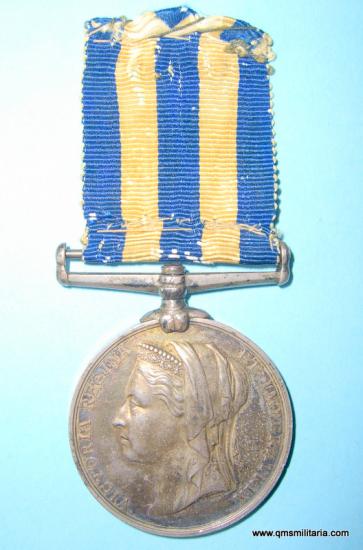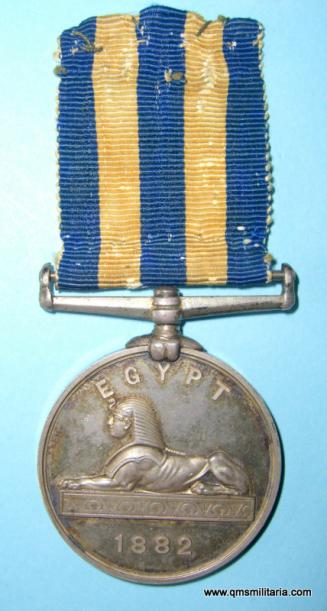Article 11 - Field Telegraph Communications in the Egyptian War of 1882, 'C' (Telegraph) Troop, Royal Engineers
C (Telegraph Troop) Royal Engineers, first saw active service in the Zulu War of 1879, and a little later in the Egyptian campaign of 1882, where the unit laid cable in no-mans land to guide advancing British troops and later sent the first victory signal ever to come direct from a battlefield.
In 1882, British troops were landed at Ismailiyah in Egypt and the telegraph company was able to make use of the railway wire up to a point within a few kilometres of Tel-el-Kebir station, where the Egyptians held an entrenched position. The telegraph company completed its assignment simultaneously with the attacking force by laying cable at night along the railway line, a task it completed at a rate of 10km an hour, some of it under shellfire. After establishing a field telegraph station in a saloon carriage at the now-captured railway station, the company was able to make immediate connection directly to Ismailiyah, and hence to London via submarine cable, to announce the success of the campaign to the Queen and the War Office. The dispatches ‘were sent off at 0830 hrs and at 0915 hrs we received Her Majesty’s reply’. This direct and rapid communication from a campaign headquarters abroad to the War Office in Whitehall was unprecedented, and served to establish telegraph communication as a vital part of future military operations.
It has also resulted in a massive breach of protocol! Queen Victoria, instead of sending her congratulations via the War Office, as protocol required, had sent her personal message of congratulations directly to Sir Garnet Wolseley. The complaint that followed from the War Office to Windsor resulted in a direct rebuke from the Queen to the effect that she could write to her generals how and when she so chose.
The medal accompanying this article (now sold) is the Egypt & Sudan Medal 1882-89 Medal, dated reverse without clasp (as issued) correctly engraved to "11874 Sapr. W. G. Snelling, C. Tp. R.E." ('C' (Telegraph) Troop, Royal Engineers). Only 66 no clasp medals were issued to 'C' Troop.
Sources:
1) Beauchamp, K. (2001) 'History of Telegraphy, IET. p121.
2) Hattersley, R. (2013) 'The Devonshires: the Story of a Family and a Nation', Random House, London, p.378.
3) Joslin, Litherland & Simpkin (1988) 'British Battles & Medals, Spink London, p160.
Research compiled by Mike Finchen.
Code: 54457


